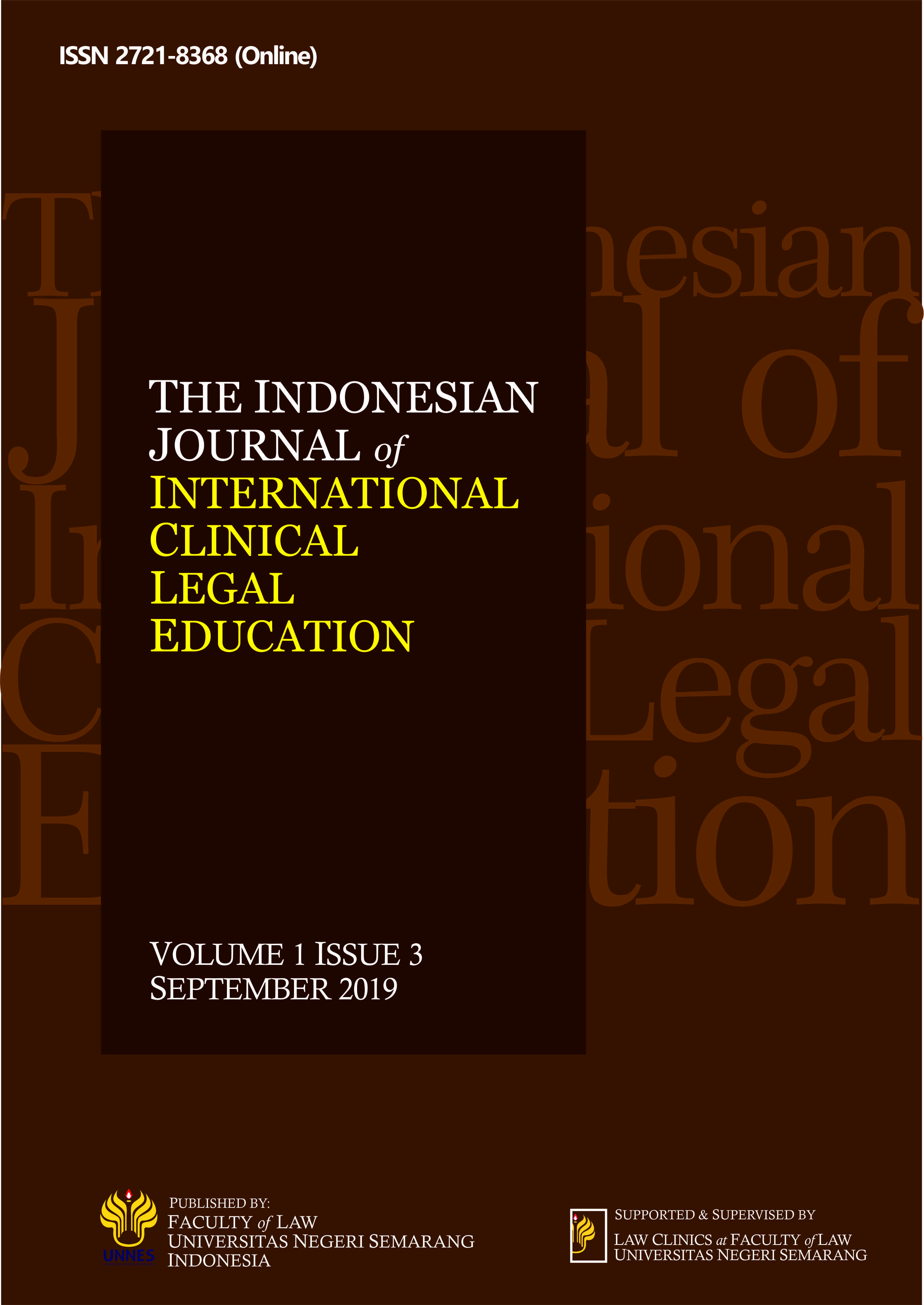The Ideal Model of Law Education to Achieve Progressive Law Enforcement
Main Article Content
Abstract
The legal education in Indonesia tends to produce graduates who
believe in legal positivism. The principle of legal positivism runs as
follows. Firstly, it encourages law enforcers to think and act in any legal
formalistic way. Secondly, it places judges as the mouthpiece of the law;
who cannot express to make decisions that satisfy a sense of social
justice and substantive justice. How the ideal model of legal education
is formed in order to create more progressive law enforcement. This
article is based on the socio-juridical approach by underlying the
analysis of the law and regulations which are related to the application
of legal education in the community. The legal education is oriented to
legal positivism that results in law enforcement with the understanding
of law based on the abstract values, not on the values that live and
thrive in society, so that the understanding of the law in a legal sense is
more repressive, and not responsive. Law is understood as unfunctional
and un-pragmatic things therefore understanding of law is
the law that merely protects the elite group of citizens, in such a way
that equality before the law and the rule of law don’t work. Legal
education in the future should be based on the sociological aspects of
prioritizing the principles of social justice and the benefits for the
community, instead of legal certainty only. Legal education will produce
a responsive law enforcement that put substantive fairness and social
justice as a legal purpose.
Article Details
The copyrights of the article in Indonesian J. Int'l Clinical Leg. Educ. is on the Author(s), however, before publishing, it is required to obtain written confirmation from Author(s) in order to ensure the originality (Author Statement of Originality). The statement is to be signed by at least one of the authors who have obtained the assent of the co-author(s) where applicable. This work licensed under a Creative Commons Attribution-ShareAlike 4.0 International (CC BY-SA 4.0). All writings published in this journal are personal views of the authors and do not represent the views of this journal and the author's affiliated institutions.
